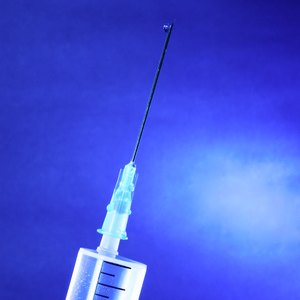
New York State (NYS) Medicaid provides medical coverage for low-income residents of New York. If you qualify for NYS Medicaid, you must use providers within the state for your medical care. While this requirement covers your medical needs within the state of New York, it leaves you without coverage when traveling to other states. Regular check-ups and other types of non-emergency care will usually have to wait until you return to New York, unless you have prior approval from Medicaid. If you have an emergency medical problem, however, you may seek help for it without prior Medicaid approval.
Go to the closest emergency room or call an ambulance to take you to the nearest hospital. If you have a medical emergency, NYS Medicaid will cover the treatment you receive.
Inform the staff at the hospital that you have NYS Medicaid. A staff member will request your insurance number and other information important for filing a claim with NYS Medicaid.
Submit to the care the health care provider recommends to stabilize your condition. Once the emergency is over, you may need to return to New York for follow-up care. If your medical condition prevents you from safely traveling back to your home state, however, NYS Medicaid may provide approval for your continued treatment.
Encourage the hospital to bill NYS Medicaid for your treatment. Your medical bills should be approved and paid if you were treated for an emergency.
Tips
Call your primary care physician if you are not sure your situation is an emergency. He may tell you to go to the emergency room or recommend that you make an appointment to see him when you return to New York.
If a health care provider isn't familiar with NYS Medicaid, he may be reluctant to treat your emergency condition without getting approval. He can safely do so, however, as NYS does not require prior approval in an emergency situation.
Sometimes health care providers mistakenly send bills to Medicaid recipients. If this happens to you, send a copy of the bill to Medicaid and remind the provider to bill Medicaid.
The health care provider who treats your medical emergency may have to enroll with NYS Medicaid to be paid for your care. If the provider refuses to enroll, you may be responsible for paying the bill.
Warnings
Never seek non-emergency care out of state without NYS Medicaid's prior approval. If a health care provider tries to bill Medicaid in such a case, your claim will probably be denied.
References
- Medicaid Managed Care Model Member Handbook
- New York State Policy Guidelines
- Medicaid.gov. "Eligibility." Accessed August 10, 2020.
- U.S. Department of Health and Human Services. "Long-Term Care Services." Accessed August 11, 2020.
- Haven Life. “What is Long-Term Care Insurance, What Does It Cover, and Is It Right for You?” Accessed August 11, 2020.
- Medicaid.gov. “Estate Recovery.” Accessed August 11, 2020.
Writer Bio
Jordan Meyers has been a writer for 13 years, specializing in businesses, educational and health topics. Meyers holds a Bachelor of Science in biology from the University of Maryland and once survived writing 500 health product descriptions in just 24 hours.
